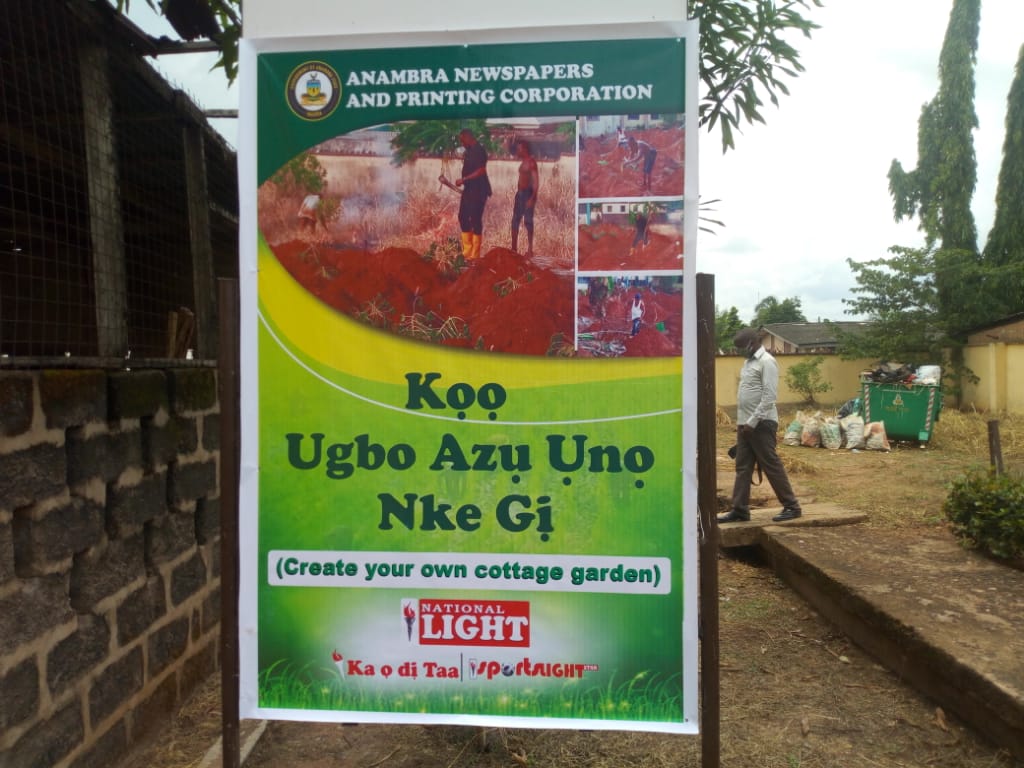Written By: Chinma Enem
Agricultural activities, apart from contributing to climate change, ensure food security, which, invariably, mitigate hunger. Significantly, food is central to man’s growth, hence the need for its production at sustainable level. Health, they say, is wealth. That is why Agriculture is very important to man because it is a source of livelihood.
Backyard farming, also known as Ugbo Azu Uno, is a sustainable means to actualize self sufficiency in food production. Investment in Ugbo Azu Uno can help people become self-reliant, assuage hunger, increase individual and family income and ensure more sustainable food systems and food security.
Hence, Governor Willie Obiano, since inception in 2014, placed Agriculture as the number one pillar of his administration’s policy thrust. This recognition of the importance of agriculture as a means to provide food and other resources to man has helped him to promote basic human needs.
Suffice it to say that Governor Obiano’s administration has very high regard for empowerment and employment generation, food security, and poverty reduction. The administration unfolded a master strategy to transform the agricultural sector into a leading player in national and global markets. This strategy has created employment opportunities as well as promoted food sufficiency in Anambra, nay Nigeria.
That is why when the governor constituted a 7-member committee on subsistence farming in Anambra State with a charge on them to mobilize the people for homestead farming, otherwise known as Ugbo Azu Uno, in order to enhance food sufficiency in the state, thumbs were up for him. Ugbo Azu Uno, no doubt, is a means of family survival and food preservation. Backyard farming, which seems to be the genesis of agricultural and communal life, helps to check food crisis and relieves hunger. Ugbo Azu Uno is important for every household. So, let us all embrace the scheme in order to save money for the family.
With Ugbo Azu Uno, family members could cultivate pumpkin (ugu), scent leaf (Ncha-anwu), curry, okra, tomatoes, plantain, pepper, and onions. Some people can take a livestock farming like poultry, fishery, and snail farming. People can as well plant some economic trees like oranges, mango, paw paw, cashew etcetera. These farm products could serve for family use and equally be sold in the market, which helps to supplement the income of the farmers.
Ugbo Azu Uno is cheap and saves money. It does not require special skills or expensive equipment but it yields maximum profit. Backyard farming is not seasonal, but an activity that could be undertaken at any given time. Homestead farming, which can be practiced at any available space, usually at the back of one’s residence, contributes to the better living and sustainability of families.
In line with its vision, the government of Anambra state had trained various people in Agriculture. The government has equally empowered no fewer than 2,000 women in farming; trained and equipped thousands of youths in bee keeping for original honey production.
Governor Obiano’s huge investment in agriculture has also lured many companies and individuals into rice, cassava, maize, vegetables and yam production. Hence, today, we have Anambra Rice and other farm products in commercial and exportable quantity all over the country.
Furthermore, Obiano re-introduced the Ugbo Umu Akwukwo or school farming programme in Primary and Secondary schools, designed to impart agricultural skills early in the school children.
Indeed, Agricultural production in Nigeria has benefited a lot from Anambra experience in promoting sustainable development in Agricultural programmes. In that regard, Ndi Anambra are enjoined to be actively involved in various levels of agriculture, especially Ugbo Azu Uno scheme.
Ndi Anambra should sustain interest and collectively embrace the on going revolution in Agriculture to achieve food security and build prosperous future for our children.





Comments are closed for this post.